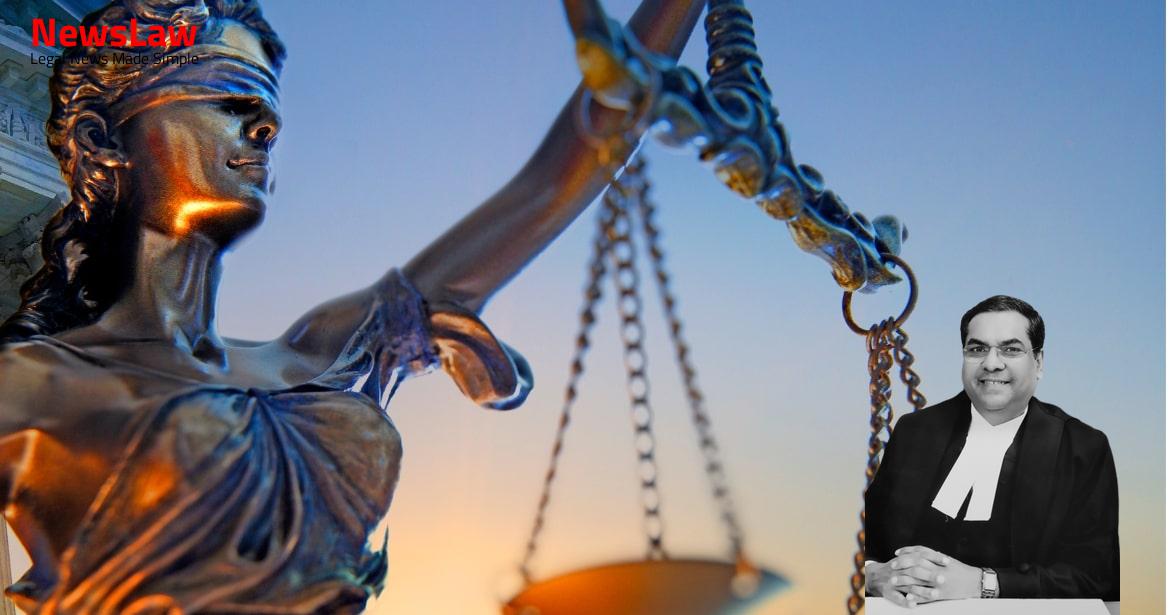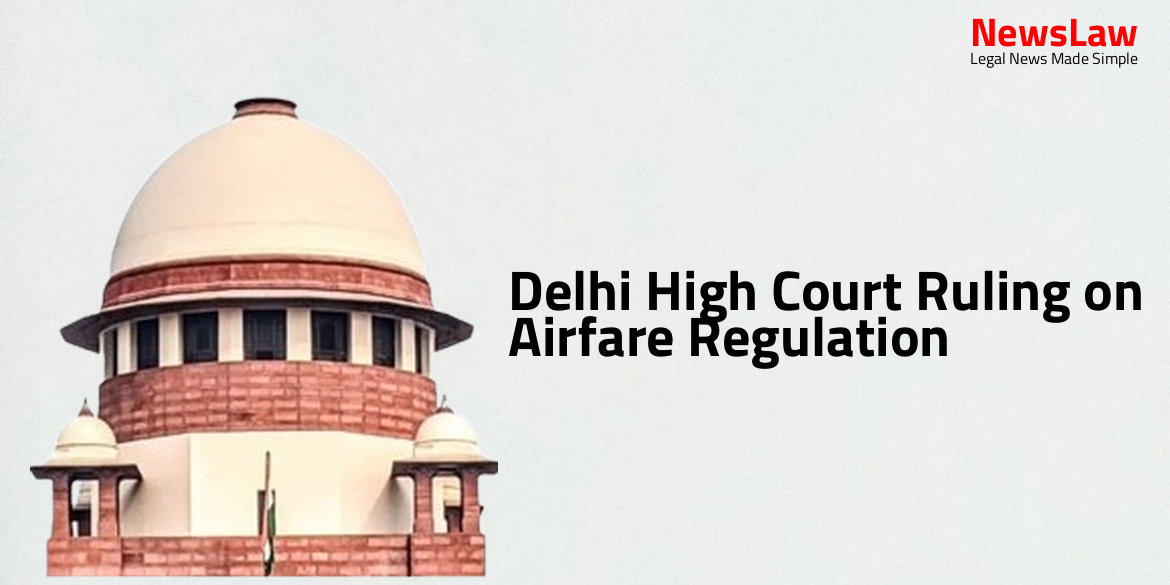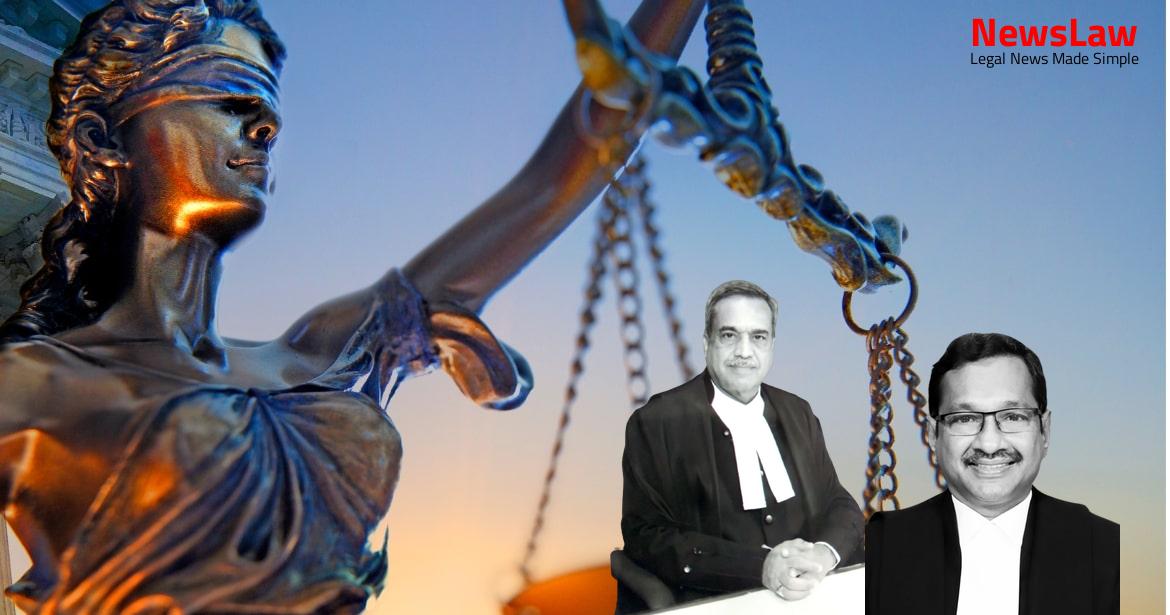The High Court’s nuanced legal analysis regarding the levy of purchase tax on empty bottles provides significant insights into the interpretation of tax laws. By upholding the tax liability on bottles purchased by the assessee for bottling purposes, the Court delves into past precedents and amendments to elucidate the basis for its decision. The objective of preventing tax evasion and ensuring clarity in taxation laws forms the crux of the Court’s analysis, shedding light on the complexities of the issue at hand.
Facts
- The High Court allowed the writ petition filed by the assessee stating that the purchase turnover of empty bottles from unregistered dealers is subject to purchase tax under Section 7-A of the Tamil Nadu General Sales Tax, 1959, but the assessee is entitled to benefit from Clarifications dated 09.11.1989 and 27.12.2000 until they were withdrawn by the Clarification dated 28.01.2002.
- The Tribunal refused to interfere with the order dated 27.03.2002, as it was based on the latest Clarification dated 28.01.2002 and extended the rule on tax for bottles to casks and kegs as well.
- The High Court considered three questions in its order dated 10.09.2004, regarding the levy of purchase tax on empty bottles, applicability of Clarifications issued by the revenue, and taxation of cash discount offered by the assessee to TASMAC.
- By applying legal precedents and considering the objective of preventing tax evasion, the High Court upheld the levy of purchase tax on the turnover for the purchase of empty bottles from unregistered dealers under bought note.
- The assessee was assessed for the assessment year 1996-97 on a total turnover by the revenue.
- The AO confirmed the proposal of levying purchase tax on bottles purchased from unregistered dealers for bottling Beer and IMFL products.
- The assessee argued that empty bottles were not consumed in the manufacturing process and that the bottling did not conclude the manufacturing process.
- The cost of bottles was a percentage of the manufacturing cost for Beer and IMFL products.
- The AO relied on the Madras High Court decision and the decision of the Court in Premier Breweries case for levying purchase tax.
- The issue involves interpretation of Section 7-A of the Act regarding purchase tax on empty bottles and the legality of imposing tax on cash discounts.
- The AO later proposed to revise the assessment by disallowing exemption on cash discount offered by the assessee.
- The assessee submitted objections regarding the levy of purchase tax on empty bottles based on various legal clarifications.
- The PCCT issued a clarification that purchase of empty bottles couldn’t be charged under Section 7-A for certain assessment years.
- The High Court’s order on the liability of purchase tax for the assessment years 1986-87 to 1989-90 on the purchase of empty bottles is also under appeal.
Also Read: Limitation Laws in Insolvency Proceedings
Arguments
- The High Court correctly applied the principles from past decisions to grant the benefit of Clarifications dated 09.11.1989 and 27.12.2000 to the assessee.
- The bottles used for Beer/IMFL remained bottles throughout the process, even after being filled, consumed, and reused.
- The High Court failed to consider relevant decisions of this Court in similar matters.
- The new Clarification dated 28.01.2002 did not withdraw the earlier Clarification dated 27.12.2000 and was only prospective.
- The amendment to Section 7-A of the Act broadened the scope of taxable goods and the jurisdiction to levy purchase tax.
- The decision in Appollo Saline Pharmaceuticals (supra) is distinguishable and inapplicable to the present case.
- The interpretation of Premier Breweries (supra) regarding taxable turnover and packed goods was discussed.
- The purchase tax on goods consumed in manufacturing should not apply where the goods retain their identity throughout the process.
- The Clarifications/Circulars issued by the revenue department are binding and should be upheld.
- Various court decisions and legal interpretations have been referenced to support the arguments presented.
- The respondent asserts that purchase tax on the turnover in question is not leviable for two main reasons: the bottles were not consumed or used in the manufacture of liquor but only used as containers for the already manufactured liquor, and the sale value of bottles has already been subjected to tax at the time of sale of its contents.
- The respondent heavily relies on the decision in Hotel Balaji and interprets the provisions in the Haryana Act as in pari materia with Section 7-A of the Tamil Nadu Act.
- The respondent argues that the use of bottles is essential in the manufacture of Beer/IMFL and that their packaging in glass bottles should be viewed as an inseparable composite unit. The respondent also argues that the levy of sales tax on the bottles sold with liquor does not impact the question at hand, as such sales tax would be leviable even if the bottles were purchased after tax payment.
Also Read: Tax Deduction at Source and Section 40(a)(ia) Disallowance
Analysis
- The Constitution Bench of the Court took note of Section 6-A of the Andhra Pradesh Act, which focused on the levy of tax on goods consumed in the manufacture of other goods for sale or otherwise.
- The object of the provision was to prevent tax evasion and plug leakage in the system.
- The interpretation of the expression ‘or otherwise’ in the context of consumption of goods was crucial for determining the applicability of purchase tax.
- There was a divergence in views between the cases of Ganesh Prasad Dixit and Pio Food Packers, leading to the matter being presented before the Constitution Bench for resolution.
- The Constitution Bench did not approve the view expressed in Pio Food Packers and emphasized that every change in an article is not considered as ‘manufacture’.
- The Court discussed the implications of consuming goods in the manufacture of other goods for sale or otherwise, emphasizing the importance of creating a new substance in the process of manufacturing.
- The judgement pointed out the necessity for a distinct commodity to come into existence for a process to be considered as ‘manufacture’.
- The interpretation of the law on determining whether goods were liable for purchase tax was discussed, drawing from previous decisions and legal principles.
- The Court clarified the applicability of certain expressions and phrases in the tax laws to prevent ambiguity and ensure proper taxation.
- Section 7-A was inserted in the Tamil Nadu Act with effect from 27.11.1969.
- Significant amendments were made to Section 7-A including changes in applicability and dimensions of its scope.
- The provision underwent further modifications by subsequent amendments in 1986 and 1993.
- A notable change in 1997 further widened the coverage under clause (a) of Section 7-A (1) by inserting the words ‘or for’ after ‘in’.
- Judicial interpretations on exemptions for containers and packing materials from tax liability were discussed.
- Relevant sections of the Tamil Nadu Act including sub-sections (1), (7), and (8) of Section 3 were highlighted for understanding the charging provisions for sales tax.
- The High Court confirmed the assessee’s liability towards purchase tax under Section 7-A of the Act for the assessment years 1986-87, 1987-88, 1988-89, and 1989-90.
- The assessee challenged the common order dated 05.12.2013 in Civil Appeal Nos. 4416-4419 of 2014.
- The assesse’s liability towards purchase tax was upheld by the High Court in this specific part of the judgement.
Also Read: Legal Analysis of Subsidy Entitlement under RIPS-2003
Decision
- The High Court’s decision regarding the levy of purchase tax against the assessee on 05.12.2013 is justified.
- No grounds for interference in favor of the assessee have been established.
- Civil Appeal Nos. 4416-4419 of 2014 filed by the assessee have been dismissed.
- The discussions and conclusions from the order dated 10.09.2004 also apply to this set of appeals.
Case Title: THE COMMERCIAL TAX OFFICER AND ANR. Vs. MOHAN BREWARIES AND DISTRILLERIES LIMITED (2020 INSC 446)
Case Number: C.A. No.-007164-007164 / 2013



